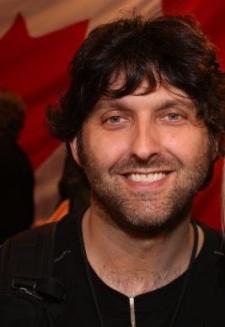
Credit: photo by jacksonphotografix.com
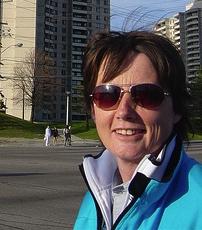
Credit: photo by jacksonphotografix.com

Credit: photo by jacksonphotografix.com
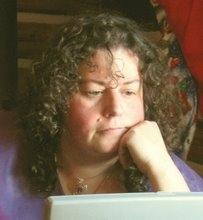
Credit: photo by jacksonphotografix.com
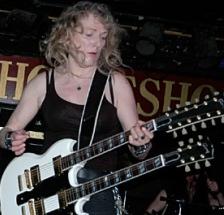
Credit: crackpuppy.net
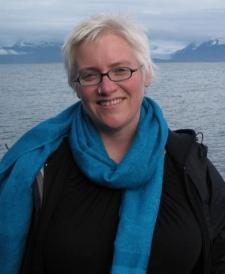
Credit: crackpuppy.net

Credit: crackpuppy.net
At this month’s Pride parade in Winnipeg, one of the coolest dykes in town, Margaret Bryans, wore a hand-painted T-shirt that said, “Stonewall was a riot not a picnic.”
The push to create a distinct gay culture has come a long way since the history-changing events of 1969. But will the gay liberation movement last another 40 years? Or will Pride parades and festivals become as passé as Kris Allen?
This week, Xtra.ca called up cool queers from across the country and asked them: Eighty years after Stonewall, will we still be celebrating?
Here’s what they had to say…
MITCHEL RAPHAEL, Ottawa
Capital Diary columnist for Maclean’s magazine (and online at Macleans.ca) and former editor of Fab.
From the Festival of Dionysus to the Carnival of Venice, “there have always been festivals of debauchery,” says Raphael. Gay Pride is simply the most recent example, and he expects it will last as long as capitalism. “There’s a noble side of Pride, to be a beacon of hope for other countries,” he says. “But as long as people are making cash off it, they’ll do it.”
Raphael sees a lot of growth potential in the Pride movement. As more and more countries have Stonewall moments, more and more queers will hit the streets. He doesn’t think the core personalities will change, though. “Forty years after Stonewall, the drag queens are still dressing up as Liza, Barbra and Marilyn,” he says. “Everyone likes to think of queer culture as cutting edge, but the gay community is very traditional when it comes to harnesses, wigs and nails. We’re still playing Over the Rainbow.”
JANE FARROW, Toronto
Executive Director, Centre for City Ecology, which organizes Jane’s Walks across Canada. Farrow is also a regular CBC Radio broadcaster who is guest-hosting the show Q in August.
In 2049, Farrow will be approaching her 100th birthday. But she still hopes to celebrate Pride. “My Pride will include yoga for seniors, maybe a doctor’s appointment and a massage from a buxom, Swedish brunette,” she says. She doesn’t think she’ll be the only one celebrating, either. “The fourth female prime minister of Canada will be entertaining her blended family and lesbian lover at 24 Sussex Drive.”
Farrow sees many signs that the queer community is becoming mainstream, but she doesn’t think we should fight it. “There’s a beautiful resilience to being on the margins,” she says. “We need to savour the outsider status and make the most of it. But when something is lost, something else is gained.” Even if there’s no parade in 2049, she predicts, “there will always be parties.”
STEPHEN LAWSON aka GIGI L’AMOUR, Montreal
Video artist, premiering his new work Monument: Can’t Stop Won’t Stop Progress (with Aaron Pollard) at Trinity Square Video’s 2009 Pride exhibition in Toronto, until Saturday. Lawson and Pollard’s video will also be broadcast at Toronto Pride’s South Stage this Sunday at sunset.
“I’m not one of those queers who is looking for assimilation,” says Lawson. “Assimilation is the death knell of Pride celebrations. So if having Pride means wearing sweat pants and Tilley hats then fuck it, it won’t last.”
According to Lawson, Pride will end the minute the queer community forgets its Stonewall roots. “If we don’t continue to celebrate trannies, freaks, sex workers, the poor and the fighters — the truly oppressed — then it doesn’t have a hope in hell of lasting another 40 years.”
Other political issues are important, too, he says. For instance, he decries the fact that corporate sponsors like Coca-Cola get credit as community-builders. “In many parts of the world,” says Lawson, “Coke is less expensive than fresh water. But these debates fall by the wayside because people just want to belong.”
Lawson rejects the queer community’s desire to join the institutions that strangled queer liberation in the past, namely marriage, monogamy and the military. “If we continue to want to belong to those institutions, Pride will disappear,” he says.
KAREN WEHRSTEIN, Huntsville, Ontario
Writer of adults-only science fiction at Chevenga.com.
“My hope would be that we don’t celebrate Pride anymore because it’s so normal that we don’t have to,” says Wehrstein. In 2049, she sees a world without closets or internalized homophobia. “I’d like to think that gay people will be more accepting of themselves and if you love yourself you can get along better with others,” she says.
Forty years from now, Wehrstein predicts that the gay community’s main concerns will be environmental, not sexual. “If there is a Pride parade,” she says, “we’ll be going in hot, protective gear with bottled water we had to fight another country for.” No matter what, though, she figures there will be an all-gay after-party. “There’s always going to be a separate social culture for gay people,” she says. “If you want one flavour, you won’t just find it in a bar that offers other flavours.”
PATRICIA WILSON, Toronto
Assistant bar manager at Buddies in Bad Times Theatre. Wilson also plays guitar in the band Crackpuppy, performing at Toronto Pride’s Alexander Parkette AlternaQueer Stage this Sunday at 6pm.
Brace yourself, says Wilson, because the Stonewall riots are coming back. “Mainstream people haven’t bought into queerness,” says Buddies’ long-time tranny bartender. “It’s just a fad for them and it’s all gonna fall apart.” When the backlash comes, she says, “we’ll have to start all over again.”
According to Wilson, “there’s no such thing as queer rights, there is only queer money.” And when the powers-that-be (corporate executives and politicians) decide they don’t need pink dollars, the party’s over. “Never take anything for granted and never trust what the people at the top are giving you,” she warns, “because they can always take it away if they need to.”
MEAGAN PERRY, Whitehorse
Executive producer, Rabble podcast network on Rabble.ca.
In 2049, the year we celebrate the 80th anniversary of Stonewall and Neil Armstrong’s “one small step for mankind,” Perry looks forward to celebrating Pride on the moon. She hopes to go there on the first all-gay shuttle launch, then plant a rainbow flag right next to the stars and stripes.
But seriously… Perry still remembers her very first Pride, in Edmonton in 1994, which happened to coincide with Stonewall’s 25th anniversary. “I had just come out,” she says. “It was such a great celebration for me.” Forty years from now, she feels, people will still need an excuse to party and let loose. But she predicts the advent of competing Pride parades — one for a PG audience and the other for an R crowd. “I don’t want that to happen but I think that’s what will happen.” Perry hopes, at 77, she’ll appreciate the raunch. “God only knows what it will be but I hope I like it,” she says.
THIRZA CUTHAND, Saskatoon
Film and documentary maker. Her short, You’re a Lesbian Vampire, will be shown at the Out on Screen Vancouver Queer Film Festival during that city’s Pride festival in August.
Cuthand hopes that, by Pride 2049, the anti-gay protesters who troll the Pride parade in her hometown will have packed up their picket signs and gone home. Or better yet, died. By then, she says, “I think Pride will have babies that have been ID’ed as queer since conception.” She’s also keeping her fingers crossed for cyborgs at Pride. Why? Because that would mean cybernetic sex! Cuthand is excited by all the ways that love will evolve in the next half-century.
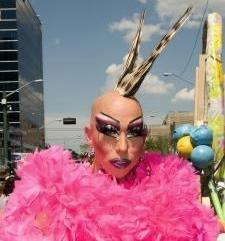
 Why you can trust Xtra
Why you can trust Xtra


